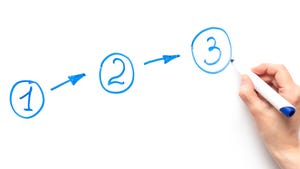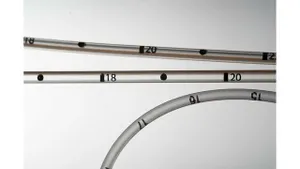Indorama makes another PET move, buys Wellman’s European recycling ops
PET supplier Indorama, based in Thailand, has made another acquisition as it continues to expand its footprint beyond Asia. In late 2010 it acquired Invista's polyethylene terephthalate (PET) assets in North America, Eastman's in Europe in 2007, and also spent the past few years establishing itself in Eastern Europe.
September 21, 2011
, and also spent the past few years establishing itself in Eastern Europe. Now, the company has announced its agreement to acquire Wellman International's recycling business in Europe from holding company Aurelius. Indorama hopes the purchase can move it a step closer to becoming a 'zero waste' company.
The purchase from Aurelius includes the businesses of Wellman International Limited and its related company, MJR Recycling BV. Indorama expects to complete it within 2011, subject to necessary regulatory approvals, and says the move will provide access to proven recycling technology and the potential for a technology transfer to the supplier's Asian assets with a reduced learning curve.
"This is a very exciting project for us," said Indorama Group CEO Aloke Lohia. "The target acquisition has the know-how to blend recycled PET (rPET) and industrial waste and will potentially contribute to make Indorama Ventures a 'zero waste' company with a low carbon footprint able to serve both the beverage and fiber segments of our customer base."
Wellman International is Europe's largest recycler of PET bottles, processing about 1.6 billion post-consumer PET bottles annually, as well as a leading European supplier of polyester staple fiber products and rPET. It claims that its recycling technology for bottle-to-bottle and bottle-to-fiber recycling is capable of producing very high quality materials, such as for the hygiene sector.
Wellman has three production facilities in Europe with over 153,000 tons of output each year: a polyester fiber plant based in Mullagh, the Republic of Ireland, and recycling plants at Spijk, the Netherlands, and Verdun, France. The plant in Ireland is capable of converting waste polyester into 100% recycled fiber. "The project will act as a springboard to launch (Indorama) into rPET following our ongoing construction of recycling plants in Decatur, U.S.A. and Rayong, Thailand," Lohia said. "As this is the largest recycling capacity in the whole of Europe we will have both economies of scale and lower production costs to serve our customers in both the bottle and fiber segments. We will be able to meet our customer expectations to assist them achieve their sustainability goals effectively throughout the continent. With a comprehensive European network for bottle sourcing and good supply chain efficiencies, we feel that it will contribute as an attractive platform for strong future growth in the sustainable recycling business with the potential to expand this business further around the world."
Wellman and now Indorama have a good source of post-consumer PET in Europe. According to Petcore, the European PET recycling trade group, and the European plastics recycling trade group EuPR announced this July that European post-sorting PET collection reached 1.45 million tonnes in 2010, an increase of 6.5% on 2009. The overall collection rate in 2010 remained at 48.3% of all PET bottles on the market. They estimated that the total mechanical reclamation capacity in Europe is about 1.7 million tonnes.
All but two of the countries surveyed by the two groups have a collection rate above the 22.5% target rate for plastic recovery set by the Packaging Waste Directive. The collection rate by country depends on the maturity and extent of their collection systems as well as economic instruments in place. Many countries are recording collection rates of over 70%. But the chairman of the EuPR PET Working Group, Casper van den Dungen, noted, "Capacity utilization of our recycle plants is only 79% at present. This provides the challenge for municipalities, other collectors and industry to increase the current collection rate beyond 50% to load the recycling facilities already in place."
About the Author(s)
You May Also Like


